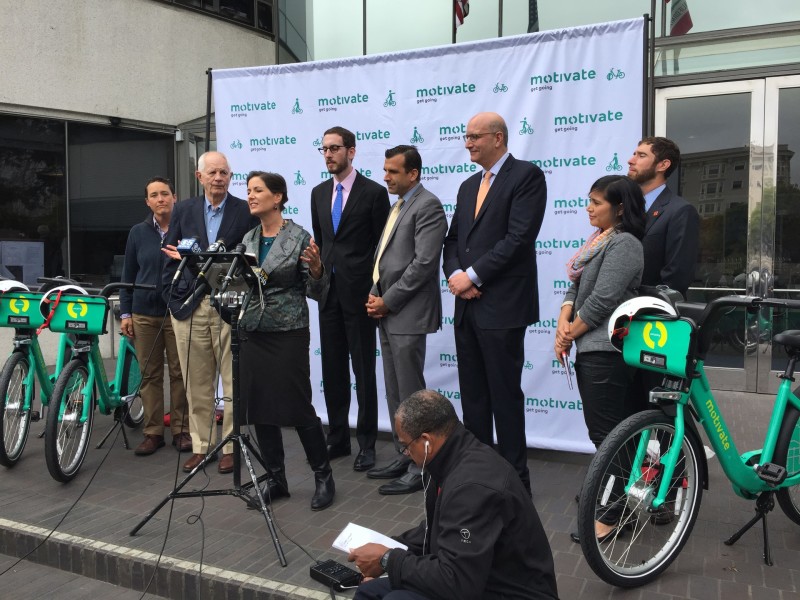"We are going to make it so much easier for our residents and workers here in the East Bay to make the healthy, economical choice to bike to and from their jobs, school and everyday trips," said Renee Rivera, the executive director of Bike East Bay.
Officials said they would immediately begin outreach efforts to decide where to place new bike stations. They launched a new site where Bay Area residents can suggest locations for stations. A flurry of suggestions began coming right after the site launched.
Original story: April 3, 2015
Bay Area Bike Share would expand to the East Bay under a proposed expansion of what's been a successful pilot program. In addition, the number of bicycles would increase tenfold -- from 700 to 7,000 -- by late 2017 if the plan unveiled this week becomes a reality.
“When we launched Bay Area Bike Share nearly two years ago, we saw a transformation in the way that residents and visitors moved around the Bay Area with an easy, convenient, affordable and healthy transportation option in our world-class transportation network,” San Francisco Mayor Ed Lee said in a statement.
Lee and the mayors of four other Bay Area cities -- Oakland, San Jose, Berkeley and Emeryville -- announced an ambitious growth plan that would take the form of a public/private partnership with Motivate, the country's biggest bike-share company, at no cost to taxpayers.
Motivate already operates Bay Area Bike Share, a three-county pilot that began in August 2013 and currently exists in San Francisco -- where 90 percent of trips have occurred -- as well as Palo Alto, Mountain View, Redwood City and San Jose. The program has been very popular, to the point that people have complained repeatedly that there aren't enough bicycles or bike stations. San Francisco Bicycle Coalition has pushed for a larger and more robust system.
The proposal by Motivate would increase the number of bikes in San Francisco from 328 to 4,500 and in San Jose from 129 to 1,000. It would put 850 bikes in Oakland, 400 in Berkeley and 100 in Emeryville. The expansion would be gradual, in four phases ending in late 2017.
Bike-sharing is designed for short trips, including commutes and errands. Motivate's fleet currently consists of 700 bicycles at 70 self-serve docking stations, which can be accessed 24 hours a day through short-term or ongoing membership in the program.
As of March 1, there have been 485,000 trips in the five pilot towns -- with 436,000 of those rides occurring in San Francisco, according to MTC data. San Francisco has exceeded expectations, but bike use in the other four cities has been lower than projected. That's why Palo Alto, Redwood City and Mountain View will be dropped from the program.
MTC spokesman Randy Rentschler said those three cities "could maintain and continue, but they would have to do it at cost." He said San Jose's ridership was low as well.
"In the case of San Jose, the plan to overcome low ridership is to build a more complete system," he said. "In these other places, it was determined the market is just not there right now."
On Wednesday, the Administration Committee of the Metropolitan Transportation Commission (MTC) will take up the proposal. Later in the month, it will go before the board of the Bay Area Air Quality Management District, which launched Bay Area Bike Share and would transfer control of the program to the MTC if the expansion is OK'd.
The full MTC would have to approve the terms of the contract later in the spring.
The proposal says that open forums and outreach events would involve residents and businesses to figure out where to install the bike-share stations. Twenty percent of them would be located in low-income communities, and customers enrolled in Bay Area utility lifeline programs would get discounted passes.
